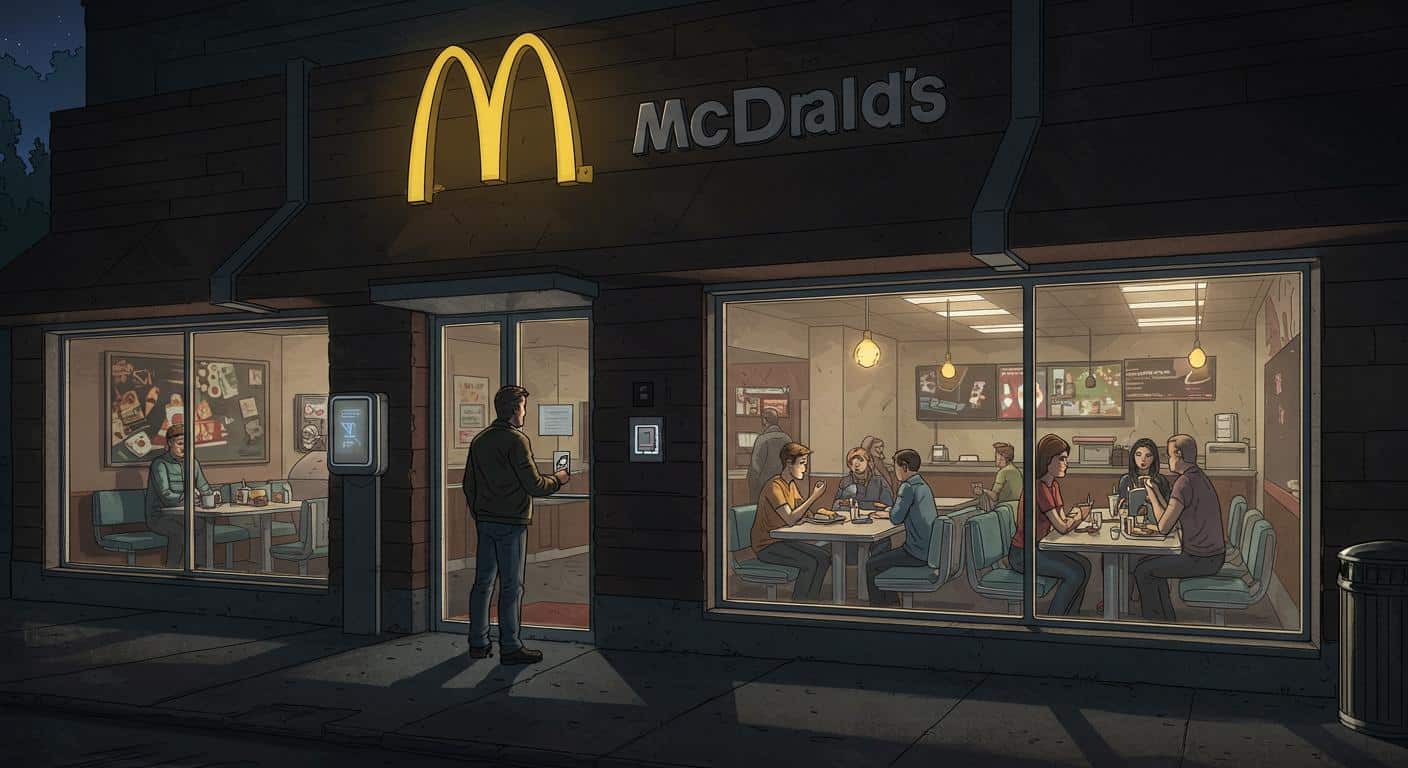The Golden Arches have always been something of a communal hub—site of the time-honored Happy Meal and, if we’re being honest, plenty of childhood noise, sticky tables, and questionable playground hygiene. But in Fairfax County, Virginia, that communal spirit has acquired a distinctly adult edge. As documented by NBC Washington, one local McDonald’s is now requiring diners to be 21 or older for indoor seating—unless accompanied by an adult chaperone, in which case, children are allowed at a four-to-one kid-to-adult ratio. And before you even step inside, you’ll need to ring a doorbell and possibly flash your ID.
The End of the After-School Special (for Now)
Described in NBC Washington’s report, the policy wasn’t conjured out of thin air. With the restaurant situated near Thomas Edison High School, managers and staff have dealt with a string of unruly incidents. Footage obtained by NBC4 reveals students fighting, standing on tables, and cursing loudly—behavior that, according to interviews with workers and patrons cited by the outlet, became a regular, disruptive spectacle.
One regular customer, Stacey, told NBC4 that she’d witnessed smoking, drinking, and general havoc during visits with her grandchildren, making mealtime feel more like enduring detention than enjoying dinner. Echoing this, other customers suggested that while the policy seemed drastic, they understood the motivation; as Bridget noted in her interview with NBC Washington, a burger joint should, ideally, provide a safe environment where families can eat without dodging flying milkshakes or trading seats to avoid rowdy teens.
ID Checks and Doorbells: The New Golden Standard?
Managers, as referenced in NBC4’s coverage, explained that the policy—introduced by sign and staffed entry—is explicitly temporary and meant to respond to repeated student violence inside the establishment. Now, on weekdays, anyone wishing to dine in (sans adult supervision) has to be able to legally purchase a beverage stronger than Sprite and pass an impromptu ID check at the door, after giving the requisite doorbell ring. NBC4 specifies that adults chaperoning up to four kids still get the green light, so family visits aren’t entirely off the menu.
In their statement provided to NBC Washington, McDonald’s emphasized their commitment to safety and community, clarifying that the policy was crafted together with local school officials and law enforcement as a stopgap while longer-term solutions are explored.
Practicality or Precaution: Where’s the Line?
Pulling back, one can’t help but note the mild absurdity—ringing a doorbell for fries, presenting your ID for a Happy Meal, and perhaps wondering if you’ll ever see a ball pit again. Yet, policies limiting youth access in response to specific behavioral trends have precedent, especially when, as the article details, business is being disrupted and regulars feel unwelcome. The implementation, with its chaperone system and staff “bouncer” duties, feels less like an isolated incident and more like a case study in crowd control for the fast food ages.
Notably, as NBC Washington contextualizes, McDonald’s has seen a recent dip in foot traffic, with broader customer uneasiness around the economy potentially at play. It’s a curious moment to actively restrict a classic segment of the customer base, though perhaps staff morale and basic safety will net out as the higher priority—at least for now.
Reimagining the Fast Food Experience
The specifics—doorbells, ID checks, precise child-to-adult ratios—invite a wry sort of amazement. Earlier in the NBC4 piece, staff and customers alike remark on the strangeness of the situation, never expecting their neighborhood McDonald’s to mirror a 1920s speakeasy, with admittance dependent on age and a buzzer. Yet, the system remains, at least as a trial: a temporary fix that reimagines the American fast-food experience as something slightly more exclusive—at least between school bells.
In the end, as relayed by NBC Washington, the company assures that this is a stopgap, a response to exceptional circumstances, not a preview of all future McDonald’s dining. Still, one can’t help but wonder: will the Happy Meal ever truly be “adults only,” or is this an odd blip in the never-ending saga of fast food meeting modern life’s messiness? The next time you see a doorbell at your local franchise, you might just have to check your wallet—not for cash, but for proof of age.







